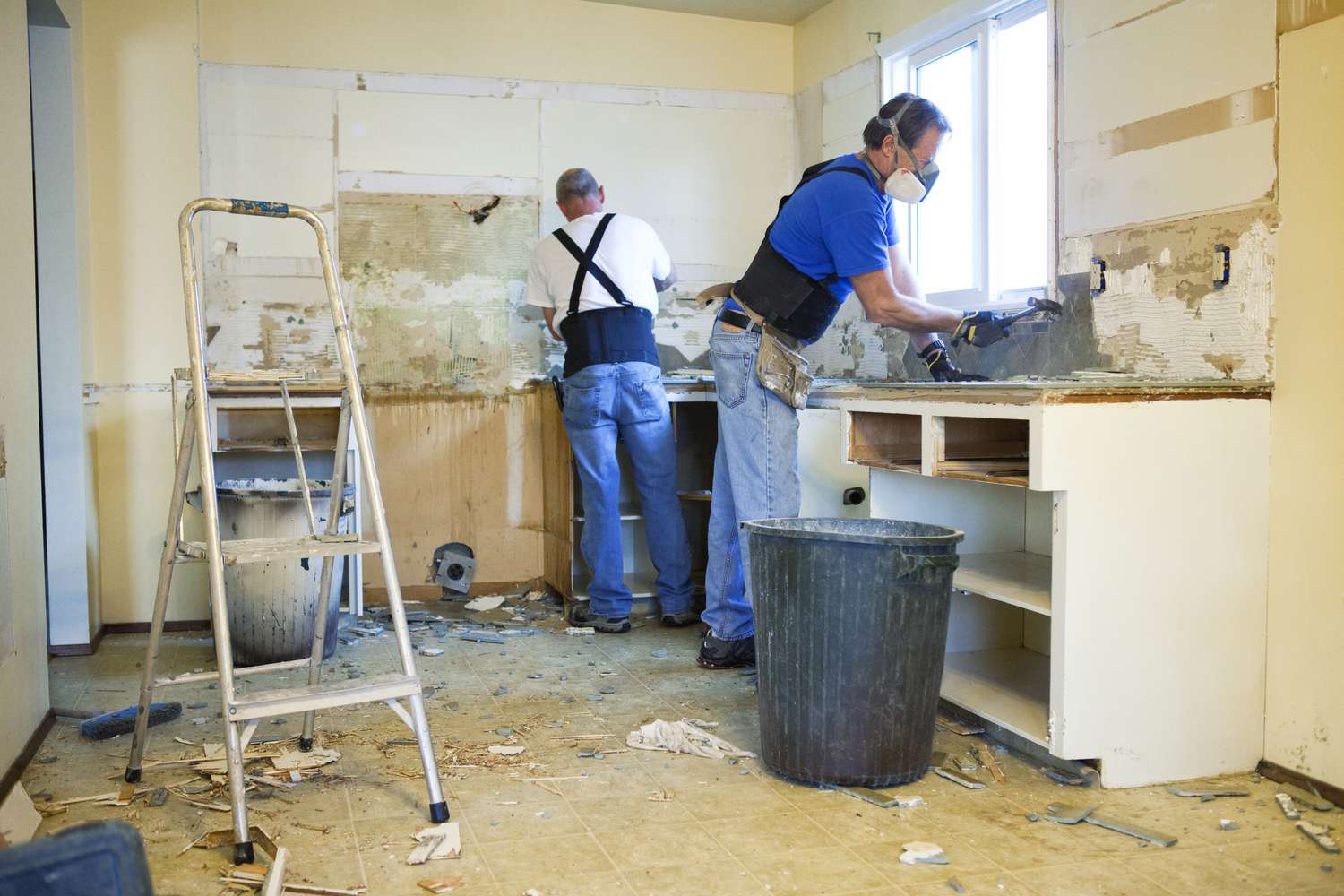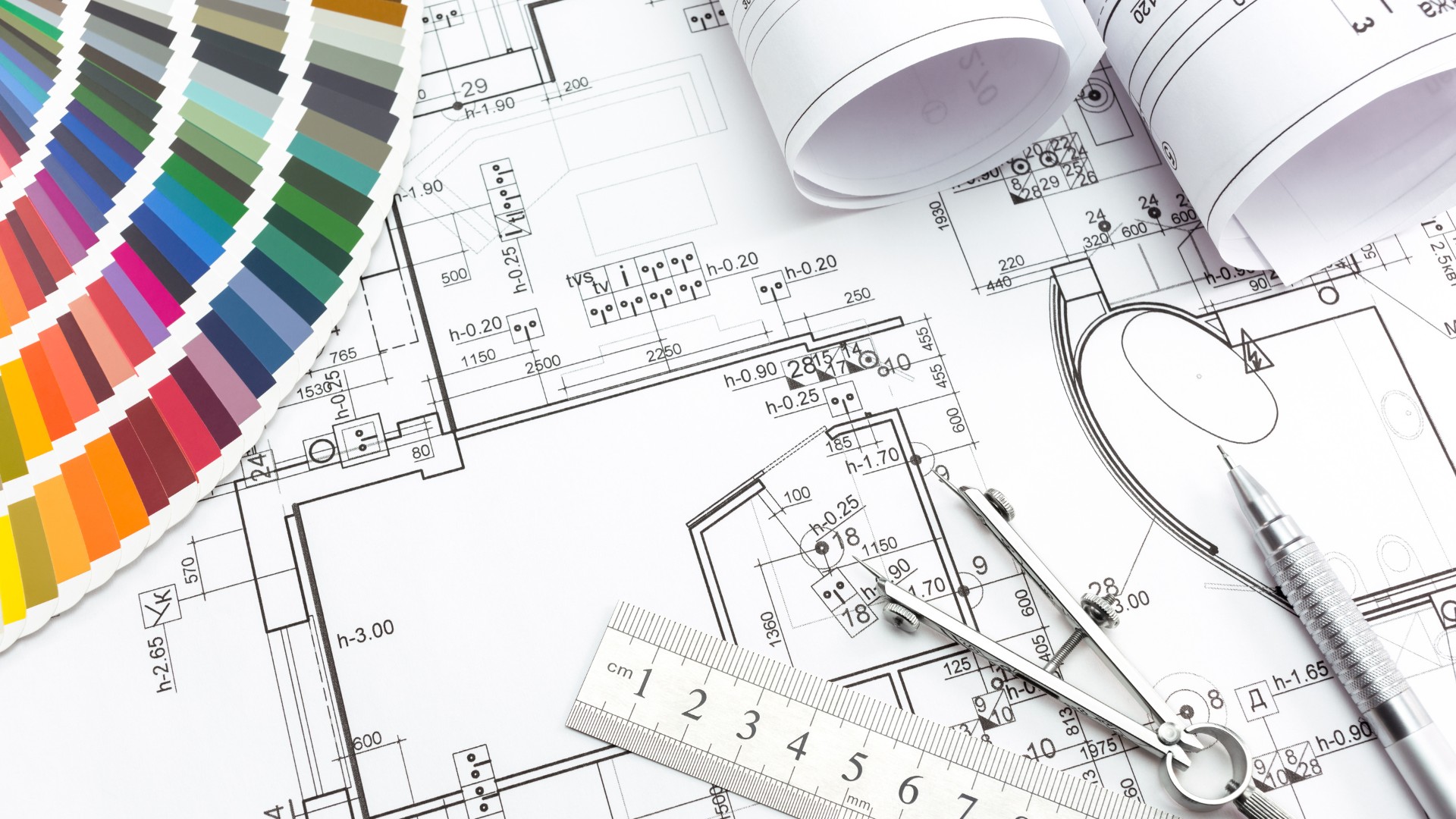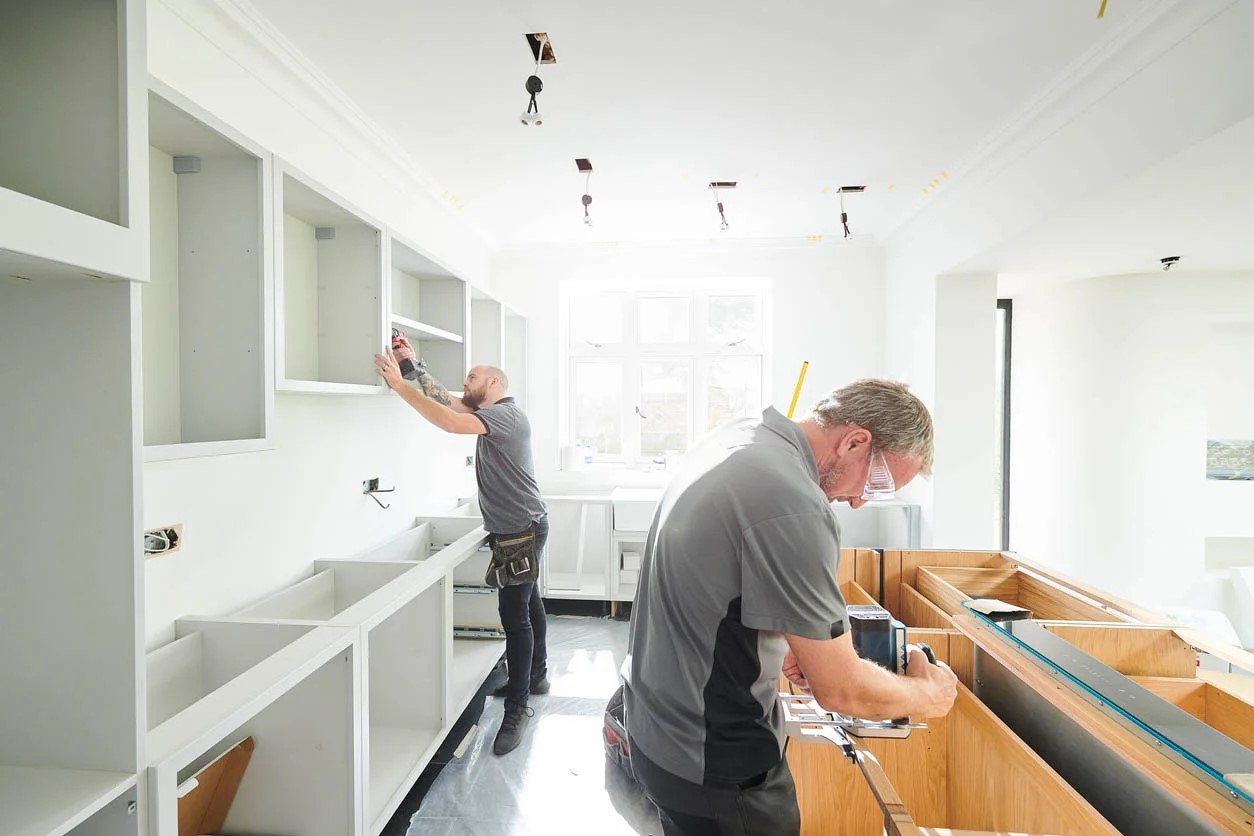Home>Home Maintenance>How To Hire A Contractor For Major Home Repair


Home Maintenance
How To Hire A Contractor For Major Home Repair
Modified: March 6, 2024
Need help with major home repairs? Learn how to hire a reliable contractor for your home maintenance needs.
(Many of the links in this article redirect to a specific reviewed product. Your purchase of these products through affiliate links helps to generate commission for Storables.com, at no extra cost. Learn more)
Introduction
When it comes to major home repairs, finding the right contractor is crucial. Whether you need to repair a leaky roof, remodel your kitchen, or upgrade your electrical system, hiring a skilled and trustworthy contractor is essential for a successful and stress-free project.
But with so many contractors out there, how do you choose the best one for your specific needs? This comprehensive guide will walk you through the process of hiring a contractor for major home repairs, offering valuable tips and advice to ensure you make an informed decision.
From assessing the scope of the project to final inspection and project completion, each step plays a vital role in the overall success of your home repair project. By following the steps outlined in this article, you can hire a contractor who will deliver high-quality work, stay within budget, and complete the project in a timely manner.
Before embarking on your search for a contractor, it’s important to note that major home repairs require skilled professionals with expertise in specific areas such as plumbing, electrical, roofing, or general contracting. Therefore, it’s crucial to thoroughly vet each contractor and verify that they have the necessary certifications, licenses, and insurance.
Now, let’s dive into the process of hiring a contractor for major home repairs!
Key Takeaways:
- Hiring a contractor for major home repairs involves assessing the project, researching contractors, and obtaining multiple bids. Clear communication and thorough inspections ensure a successful outcome.
- It’s crucial to check licenses, review contracts, and communicate expectations. Managing changes and conducting a final inspection are essential for a smooth and satisfying home repair project.
Read more: How To Hire A Drafter For Home Projects
Assessing the Scope of the Project
The first step in hiring a contractor for a major home repair is to assess the scope of the project. Before contacting contractors, it’s important to have a clear understanding of what needs to be done and what your goals are for the project.
Start by identifying the specific area of your home that requires repair or renovation. For example, if you need to remodel your bathroom, determine whether you want to update fixtures, change the layout, or install new flooring. This will help you communicate your expectations to potential contractors.
Next, consider the size and complexity of the project. Are you planning a complete overhaul or just making minor repairs? Assessing the scope of the project will give you an idea of the level of expertise and resources needed from a contractor.
Additionally, determine your budget for the project. Having a budget in mind will help you narrow down your options and ensure you find a contractor who can work within your financial constraints.
It’s also important to consider any specific requirements or preferences you may have. For example, if you’re passionate about sustainable construction, you may want to hire a contractor who specializes in eco-friendly materials and practices.
Lastly, assess the timeline for your project. Are there any specific deadlines or events that require the project to be completed by a certain date? Communicating this information to potential contractors will help you determine their availability and ability to meet your timeline.
By thoroughly assessing the scope of your project, you’ll be able to provide a clear and detailed description to potential contractors. This will help you to receive accurate bids and ensure that you find a contractor who is the right fit for your specific needs.
Researching and Gathering Recommendations
Once you have assessed the scope of your project, it’s time to start researching and gathering recommendations for potential contractors. It’s important to take the time to thoroughly vet each candidate to ensure they have the necessary expertise and reputation for quality work.
One of the most effective ways to find reliable contractors is by asking for recommendations from family, friends, and neighbors who have recently completed similar home repair projects. They can provide valuable insights and firsthand experiences with contractors they have worked with in the past.
In addition to personal recommendations, you can also use online resources to expand your search. Online directories, review websites, and social media platforms are great sources for finding local contractors and reading reviews from previous clients.
When researching contractors, look for those who specialize in the type of project you need to be done. If you’re remodeling your kitchen, for example, focus on contractors who have experience in kitchen renovations and have a portfolio of similar projects.
As you gather recommendations, create a shortlist of potential contractors that you can further evaluate. Take note of their contact information and any key details you find during your research.
While gathering recommendations, pay attention to the overall reputation of the contractors. Look for indications of professionalism, punctuality, and excellent communication skills. This can help you in selecting contractors who have a good track record and are easy to work with.
Remember, it’s important to get multiple recommendations and conduct thorough research to ensure you have a variety of options to choose from. Don’t solely rely on one recommendation or online review; gather as much information as possible to make an informed decision.
Overall, researching and gathering recommendations is a crucial step in hiring a contractor for major home repairs. By doing your due diligence and seeking recommendations from trusted sources, you can increase your chances of finding a reliable contractor who will deliver high-quality work for your project.
Conducting Initial Interviews
After gathering recommendations and researching potential contractors, it’s time to conduct initial interviews. These interviews will help you get a better sense of the contractors’ expertise, communication style, and whether they are the right fit for your project.
Contact each contractor on your shortlist and schedule a time to meet with them in person or have a phone or video call. During the interview, ask them a series of questions to gather information and assess their qualifications.
Start by asking about their experience and specialties. Inquire about the number of years they have been in business and their experience handling projects similar to yours. By doing so, you can gauge whether they have the necessary expertise and knowledge to tackle your specific home repair needs.
Ask for references from previous clients. A reputable contractor will gladly provide you with references that you can contact to get feedback on their work, professionalism, and reliability. Speaking directly to past clients will give you valuable insights into their overall experience working with the contractor.
During the interview, discuss the contractor’s availability and timeline for your project. It’s important to ensure that their schedule aligns with your desired completion date. Additionally, inquire about the size of their team and resources to determine if they have the capacity to handle your project efficiently.
Communication is key in any home repair project, so assess the contractor’s communication style and responsiveness. They should be easy to reach, promptly return calls or messages, and be open to addressing any concerns or questions that may arise during the project.
Don’t forget to discuss the contractor’s licensing and insurance. Verify that they are properly licensed to work in your area and carry adequate insurance coverage to protect you and their employees in case of any accidents or damage during the project.
Lastly, discuss the contractor’s approach to project management. Inquire about how they handle unexpected situations, change orders, and delays. A contractor should have a clear plan in place to keep the project on track and address any unforeseen circumstances that may arise.
By conducting initial interviews, you’ll be able to evaluate the contractors on your shortlist and narrow down your options. This step will help you find a contractor who not only has the necessary skills but is also a good communicator and a reliable partner for your home repair project.
Checking Licenses and Insurance
When hiring a contractor for major home repairs, it’s essential to verify their licenses and insurance. Ensuring that your contractor is properly licensed and adequately insured will protect you from potential legal and financial issues that may arise during the project.
Start by checking if the contractor holds the necessary licenses to perform the specific type of work you require. Different states and municipalities have different licensing requirements for contractors, so it’s important to research the specific regulations in your area.
You can usually verify a contractor’s licenses by contacting your local licensing board or visiting their website. They will be able to provide you with information on the contractor’s licensing status, any disciplinary actions, and whether they are in good standing.
Additionally, confirm that the contractor has the right insurance coverage to protect you from liability in case of accidents or property damage. Ask for proof of insurance and make sure it includes general liability insurance and workers’ compensation insurance.
General liability insurance protects you if there is damage to your property or if someone is injured while the contractor is working on your project. Workers’ compensation insurance covers any injuries sustained by the contractor’s employees while on your property.
Once you have received proof of insurance, make sure to contact the insurance company directly to verify the coverage is valid and up to date.
Keep in mind that hiring an unlicensed or uninsured contractor can be risky. If any issues occur during the project, you may be held liable for damages or injuries, and it can be challenging to recover any financial losses.
By checking licenses and insurance, you can have peace of mind knowing that you are working with a legitimate and responsible contractor. It’s important to take the time to verify these essential details before signing any contracts or allowing work to begin on your home repair project.
Remember, a reputable contractor will have no problem providing copies of their licenses and insurance certificates. If a contractor is hesitant or unwilling to provide this information, consider it a red flag and move on to the next candidate on your list.
Read more: Who To Hire For Home Renovation
Requesting References and Portfolio
As you narrow down your list of potential contractors for your major home repair project, it’s important to request references and review their portfolio of past work. Requesting references and reviewing their portfolio will give you valuable insights into the contractor’s quality of work, professionalism, and ability to meet your specific needs.
When asking for references, request a list of previous clients who had similar projects to yours. Reach out to these clients and ask about their overall experience working with the contractor. Inquire about the quality of the work, adherence to budgets and timelines, and how any issues or concerns were handled.
During your conversation with references, ask if you can visit their completed projects in person. This will allow you to see the contractor’s work firsthand and assess the quality and attention to detail.
Additionally, ask the contractor to provide a portfolio showcasing their past projects. This portfolio can consist of before and after photos, design plans, or testimonials from previous clients. Reviewing their portfolio will help you get a visual representation of the contractor’s work and determine if their style aligns with your preferences.
When looking at the portfolio, pay attention to the diversity of projects and if they have experience in the specific type of home repair you require. For example, if you’re looking to remodel your bathroom, ensure that the contractor has a portfolio that demonstrates their expertise in bathroom renovations.
While reviewing the portfolio, also consider the level of creativity and innovation displayed in their work. Look for unique design elements or solutions that show the contractor’s ability to think outside the box and deliver exceptional results.
In addition to references and portfolios, it’s also beneficial to check online review platforms and rating websites for feedback from previous clients. This will provide an unbiased perspective on the contractor’s reliability, quality of work, and customer satisfaction.
By requesting references and reviewing a contractor’s portfolio, you can make a more informed decision about who to hire for your major home repair project. This step will give you confidence in their ability to meet your expectations and deliver the high-quality work you desire.
Remember, a reputable contractor will be more than willing to provide references and showcase their portfolio, as it demonstrates their pride in their work and their commitment to customer satisfaction.
Obtaining Multiple Bids
When it comes to hiring a contractor for major home repairs, obtaining multiple bids is crucial. Getting multiple bids not only helps you compare costs but also gives you a better understanding of the scope of work and the contractor’s approach to the project.
Start by providing each contractor with a detailed project description or request for proposal (RFP). This should include the specifics of the work you need to be done, such as materials, measurements, and any special requirements. By providing the same information to each contractor, you ensure consistency and fairness in the bidding process.
When reviewing the bids, focus not only on the cost but also on the breakdown of the project expenses. Look for transparency in the bid and ensure that all necessary aspects of the project are included, such as permits, materials, labor, and any additional charges.
It’s important to note that the lowest bid may not always be the best option. Take into consideration the contractor’s reputation, experience, and the quality of their previous work. A higher bid may be worth it if it means working with a more skilled and professional contractor.
When reviewing the bids, pay attention to any discrepancies or red flags. Ensure that each bid covers all the necessary aspects of the project and that there are no hidden costs or vague descriptions. A clear and detailed bid demonstrates the contractor’s attention to detail and their ability to accurately estimate costs.
Once you have reviewed all the bids, schedule follow-up discussions or meetings with the contractors to discuss the details further. Clarify any questions or concerns you may have before making a final decision. This step will help you gauge the contractor’s communication skills and their willingness to address your inquiries.
Remember that negotiating the terms and conditions is also an option. If you have multiple bids that are similar in terms of cost and quality, you can discuss potential adjustments or modifications to make it more favorable for both parties.
Obtaining multiple bids allows you to make an informed decision based on cost, quality, and the relationship with the contractor. It gives you the opportunity to weigh the pros and cons of each bid before finalizing your choice.
Overall, obtaining multiple bids is a crucial step in the hiring process as it provides you with valuable insights, allows for better cost comparison, and helps ensure that you find the best contractor for your major home repair project.
Before hiring a contractor for major home repair, always check their license, insurance, and references. This will help ensure they are qualified and reliable.
Reviewing Contracts and Payment Terms
Once you have selected a contractor for your major home repair project, it’s crucial to review and thoroughly understand the contract and payment terms before moving forward. A well-drafted contract protects both you and the contractor and ensures that everyone is on the same page regarding the project details, timelines, and financial obligations.
Start by requesting a comprehensive contract from the contractor that outlines all the terms and conditions of the project. The contract should include the scope of work, materials to be used, project timelines, and any warranties or guarantees provided by the contractor.
Read through the contract carefully and ensure that all the agreed-upon details are clearly written. Pay attention to any clauses that may seem ambiguous or that you don’t fully understand. If you come across any terms or phrases that are unclear, don’t hesitate to ask the contractor for clarification.
In addition to the scope of work, the contract should include a detailed payment schedule. The payment terms should clearly outline when and how payments will be made, such as a percentage of the total cost upfront, progress payments, and the final payment upon completion of the project.
Review the payment schedule and ensure that it aligns with your financial capabilities. If the payment terms are not feasible for you, discuss potential adjustments or alternative payment arrangements with the contractor. It’s important to reach an agreement that works for both parties.
Make sure that the contract also includes provisions for change orders. Change orders are modifications to the original scope of work and may include additional work or unexpected expenses. The contract should outline how change orders will be managed, including procedures for approving and documenting changes and any associated costs.
Verify that the contract includes clauses regarding dispute resolution and how conflicts will be addressed. This can help you navigate potential disagreements or issues that may arise during the project and ensure that both parties have a fair and agreed-upon process for resolution.
Before signing the contract, ensure that you have a clear understanding of any cancellation or termination clauses. Familiarize yourself with the terms and conditions under which either party can exit the agreement, as well as any potential repercussions or financial obligations.
Remember that a contract is a legally binding document, so it’s crucial to review it thoroughly and seek legal guidance if necessary. By understanding and agreeing to the terms outlined in the contract, you can minimize misunderstandings and protect your interests throughout the duration of the project.
Overall, reviewing contracts and payment terms is a critical step in hiring a contractor for major home repairs. Taking the time to thoroughly review and understand the contract will ensure a smoother project experience and provide you with peace of mind.
Communicating Expectations and Project Details
Clear and effective communication is key to the success of any home repair project. Once you have hired a contractor for your major home repair, it’s important to communicate your expectations and project details to ensure that everyone is on the same page.
Start by scheduling a meeting with the contractor to discuss your vision and goals for the project. Clearly explain what you want to achieve with the repair or renovation, whether it’s a functional upgrade, aesthetic improvement, or both.
Provide any specific details or preferences you have, such as the use of certain materials, color schemes, or design elements. The more specific you are in communicating your expectations, the better the contractor will be able to deliver the desired outcome.
It’s also important to discuss any special considerations or restrictions that may need to be taken into account. For example, if there are specific building codes or homeowner association regulations in your area, communicate these to the contractor to ensure compliance.
During the project, maintain open and regular communication with the contractor. Schedule regular check-ins to discuss progress, address any concerns, and make sure the project is on track. Promptly communicate any changes or modifications that may arise during the course of the project.
If there are any specific deadlines or milestones that are important to you, communicate these to the contractor. Establishing clear timelines and expectations will help keep the project on schedule and avoid any potential misunderstandings.
In addition to verbal communication, consider documenting any important project details in writing. This can include material selections, design specifications, and change orders. Having written documentation ensures that both you and the contractor have a record of the agreements made throughout the project.
Be receptive to feedback and engage in constructive dialogue with the contractor. If they have suggestions or recommendations based on their expertise, carefully consider their input. Collaboration and open communication will foster a positive working relationship and lead to better outcomes.
Lastly, remember to express appreciation and acknowledge good work. Positive reinforcement and showing appreciation for the contractor’s efforts can go a long way in ensuring a harmonious working relationship and motivating them to deliver quality results.
By effectively communicating your expectations and project details, you set the foundation for a successful home repair project. Clear and open communication with your contractor will lead to a better understanding of your vision and goals, ensuring that the project meets or exceeds your expectations.
Read more: What Is A HVAC Contractor
Setting a Timeline and Monitoring Progress
Setting a timeline and monitoring the progress of your major home repair project is crucial to ensure that the work is completed efficiently and on schedule. By establishing a clear timeline and implementing systems to track progress, you can keep the project on track and address any potential issues proactively.
Begin by working with your contractor to create a realistic timeline for the project. Consider factors such as the scope of work, availability of materials, and any potential disruptions or delays. Collaborate with the contractor to set specific milestones and deadlines for key stages of the project.
Ensure that the timeline is documented in writing and that both parties have a copy for reference. This will provide a clear roadmap for the project and help hold everyone accountable for meeting the established timelines.
To monitor progress, regularly communicate with the contractor to get updates on the project’s status. Schedule regular check-ins to discuss milestones achieved, upcoming tasks, and any challenges or changes that may affect the timeline.
Consider implementing a project management system to track progress effectively. This can include using project management software, digital tools, or even a shared calendar to keep everyone informed and on the same page.
During these check-ins, address any concerns or potential obstacles that may impact the project timeline. Discuss possible solutions with the contractor and work together to find the best way to keep the project moving forward smoothly.
Regular site visits are also important to physically inspect the progress of the work. Take the time to walk through the site with the contractor, ask questions, and visually assess the quality of the work being done.
In addition to monitoring the work itself, also assess if the project is staying within budget. Regularly review and reconcile the expenditure against the agreed-upon budget, and address any discrepancies or unexpected expenses promptly with the contractor.
Keep in mind that unexpected situations or changes may arise during the project that can impact the timeline. It’s important to be flexible and adaptable, but also to communicate any adjustments to the timeline with the contractor and stakeholders involved.
Throughout the project, maintain open and transparent communication with the contractor regarding progress, deviations from the timeline, and any additional requirements or changes. This collaborative approach will help ensure that any issues are addressed promptly, allowing the project to stay on track.
By setting a timeline and consistently monitoring progress, you can maintain control over your major home repair project. This approach allows for effective communication, timely adjustments, and a smoother overall experience, ensuring that the project is completed successfully and to your satisfaction.
Managing Changes and Unexpected Situations
In any major home repair project, it’s important to anticipate that changes and unexpected situations may arise. Being prepared to manage these challenges effectively will help keep the project on track and ensure a successful outcome. Here are some strategies for handling changes and unexpected situations:
1. Open and Transparent Communication: Maintain open lines of communication with your contractor throughout the project. If you encounter a situation that requires a change in plans or unexpected findings, promptly communicate this to the contractor. Transparency and clear communication will enable both parties to address the issue effectively and find a suitable solution.
2. Assess the Impact: When a change or unexpected situation arises, assess its impact on the project cost, timeline, and scope of work. Work with the contractor to determine the best course of action and discuss any necessary adjustments to the original plan.
3. Document Changes: It’s essential to document any changes made to the project scope or timeline to avoid misunderstandings later on. Keep a record of all change orders, including the details of the requested change, the agreed-upon cost implications, and any revised deadlines.
4. Evaluate Cost Implications: Changes to the project scope can have a financial impact. Discuss with the contractor any additional costs involved, such as materials, labor, or permits, and agree on how to handle these expenses. It’s important to reach a mutual understanding and obtain written confirmation before proceeding with any changes.
5. Flexibility in Timeline and Budget: Recognize that changes and unexpected situations may require adjustments to the project timeline and budget. Be prepared to accommodate these changes within reason, but also ensure that the modified timeline and budget are realistic and feasible for all parties involved.
6. Seek Professional Advice: In some cases, unexpected situations may require professional expertise from specialists outside the scope of the original project. Consult with your contractor and, if necessary, bring in relevant professionals to assess and address the situation effectively.
7. Prioritize Safety: If an unexpected situation poses safety risks or hazards, prioritize the safety of everyone involved. Take immediate action to mitigate the risks and seek professional advice to ensure that the necessary precautions are taken throughout the project.
Remember, changes and unexpected situations are not uncommon in major home repair projects. Flexibility, effective communication, and proactive problem-solving will help you navigate these challenges while minimizing disruptions and maximizing the success of the project.
Regularly assess the impact of changes on the overall project and work collaboratively with your contractor to find the most appropriate solutions. With proper management, unexpected situations can be handled effectively, keeping the project moving forward and ultimately delivering the desired results.
Final Inspection and Project Completion
As your major home repair project nears its final stages, it’s important to conduct a thorough final inspection to ensure that all work has been completed according to your expectations and the agreed-upon scope of the project. The final inspection serves as a final quality check and provides an opportunity to address any remaining issues before officially considering the project complete.
When conducting the final inspection, use a detailed checklist that covers all aspects of the project. Inspect each area of the repaired or renovated space to ensure that the work meets your standards in terms of craftsmanship, functionality, and aesthetics.
Pay attention to details such as paint quality, finishes, plumbing fixtures, electrical connections, and any specific requirements outlined in the contract. Test out all the repaired or installed elements to make sure they are in good working order.
If you come across any imperfections or areas that need correction, discuss them with the contractor. Address your concerns and ensure that all necessary adjustments are made before finalizing the project completion.
Once you are satisfied with the work, it’s time to officially consider the project complete. Review the contract and ensure that all agreed-upon deliverables have been fulfilled. This may include finalizing paperwork, obtaining any warranties or guarantees for the work performed, and settling any remaining financial obligations.
Take the time to document the project completion. This can be done through photographs or written documentation that captures the before and after state of the repaired or renovated areas. This documentation will serve as a record of the work completed, which can be valuable for future reference or if any issues arise down the line.
It’s also a good practice to provide feedback to the contractor. If you are satisfied with the work and their overall performance, express your appreciation for their efforts. Likewise, if there were any areas of concern or shortcomings during the project, communicate your feedback constructively, with the aim of improving future projects.
Remember to ensure that all relevant permits, inspections, or approvals have been obtained. Complying with local regulations and obtaining any necessary certificates or clearances is essential to avoid potential complications in the future.
By conducting a thorough final inspection, addressing any remaining issues, and completing all necessary paperwork, you can officially mark the project as complete. Taking these steps will provide you with the peace of mind that the major home repair has been executed to your satisfaction and in accordance with the agreed-upon terms.
As you celebrate the completion of your project, take the time to enjoy and appreciate the results of your investment in your home.
Conclusion
Hiring a contractor for major home repairs can often feel like a daunting task, but with proper planning and thorough research, you can ensure a successful outcome. By following the steps outlined in this guide, you can find a skilled and trustworthy contractor who will deliver high-quality work, stay within budget, and complete your project to your satisfaction.
Assessing the scope of your project, researching and gathering recommendations, conducting initial interviews, checking licenses and insurance, and requesting references and portfolios are all crucial steps in the hiring process. Obtaining multiple bids allows you to compare costs and select a contractor that best fits your needs and budget.
Reviewing contracts and payment terms ensures that both parties are on the same page and understand their responsibilities. Effective communication, setting a timeline, and monitoring progress are essential for keeping the project on track and addressing any changes or unexpected situations that may arise.
Ultimately, a thorough final inspection and proper project completion ensure that the work has been executed to your satisfaction and that all necessary paperwork and documentation are in order.
As you embark on your journey in hiring a contractor for your major home repair, remember to trust your instincts and take the necessary time to make informed decisions. Do not rush into any agreements without thoroughly vetting the contractor and carefully reviewing all aspects of the project.
By prioritizing clear communication, setting realistic expectations, and maintaining a collaborative relationship with your contractor, you can ensure a smooth and successful home repair project that enhances the value, functionality, and beauty of your home.
So, take the first step today and start the process of hiring a contractor who will transform your home repair vision into a reality. With diligence and careful consideration, you’ll be on your way to a beautifully repaired and renovated space that you can enjoy for years to come.
Frequently Asked Questions about How To Hire A Contractor For Major Home Repair
Was this page helpful?
At Storables.com, we guarantee accurate and reliable information. Our content, validated by Expert Board Contributors, is crafted following stringent Editorial Policies. We're committed to providing you with well-researched, expert-backed insights for all your informational needs.













